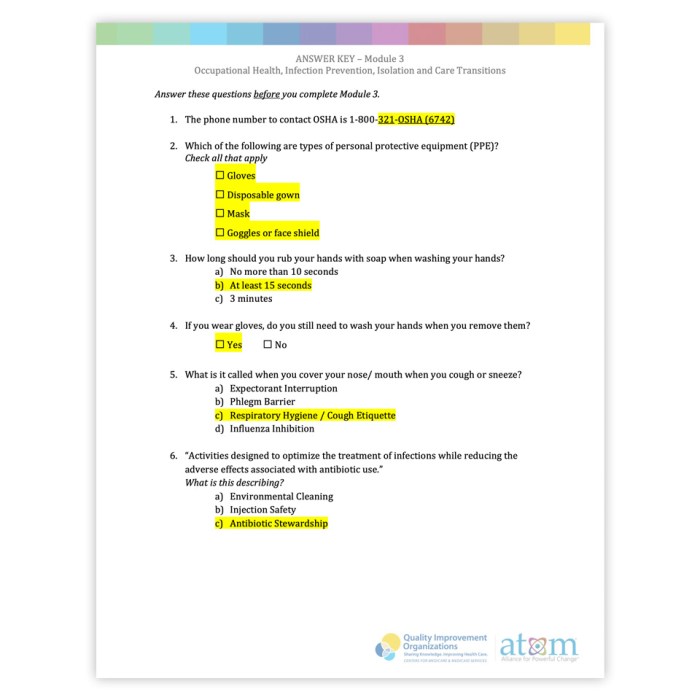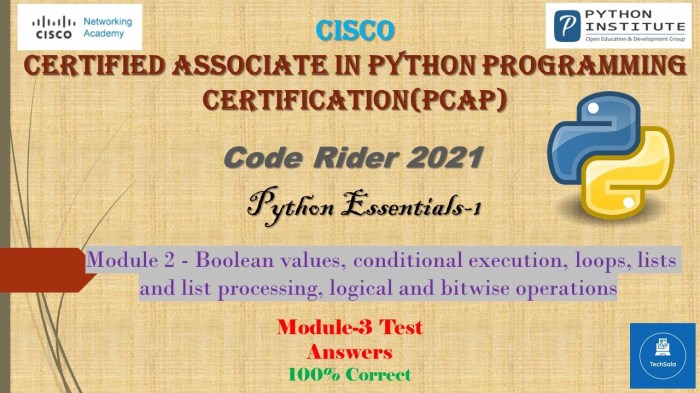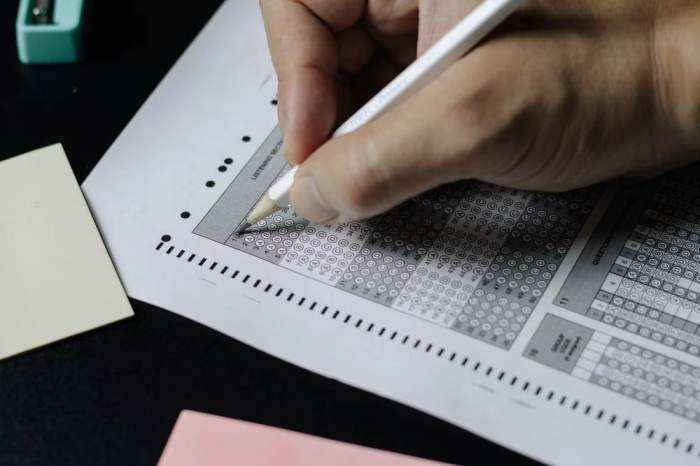Nccer module 3 test answers – Ace the NCCER Module 3 Test with our comprehensive guide to test content, study strategies, and practice tips. Master the exam and elevate your construction knowledge to the next level!
Delve into the intricacies of the test format, question types, and essential study materials. Discover proven test-taking strategies, including time management, question comprehension, and answer selection techniques. Enhance your preparation with practice questions, mock tests, and self-assessment tools.
Test Content and Structure
The NCCER Module 3 test is a comprehensive assessment that covers various aspects of concrete construction.
The test typically consists of multiple-choice, true/false, and fill-in-the-blank questions.
Content Areas Covered
- Concrete Basics
- Concrete Materials
- Concrete Placement
- Concrete Finishing
- Concrete Testing and Inspection
Study Materials and Resources

Preparing for the NCCER Module 3 exam requires a comprehensive approach that involves utilizing various study materials and resources. This includes textbooks, online courses, and practice tests, all of which play a vital role in enhancing your understanding of the subject matter and increasing your chances of success.
In addition to relying on the course textbook, consider supplementing your studies with online courses and practice tests. These resources provide interactive learning experiences, allowing you to reinforce your knowledge and identify areas that require further attention.
Reviewing Course Notes and Attending Study Sessions
Regularly reviewing your course notes is essential for retaining information and solidifying your understanding of the concepts covered in class. Active recall techniques, such as summarizing key points and testing yourself on the material, can significantly enhance your ability to recall information during the exam.
Furthermore, attending study sessions provides an opportunity to collaborate with peers, ask questions, and clarify any doubts you may have. These sessions offer a valuable platform for discussing complex topics and gaining insights from both instructors and fellow students.
Test-Taking Strategies

Preparing for an exam requires strategic approaches to ensure success. Here are some effective test-taking strategies to help you optimize your performance.
Time management is crucial. Before starting the exam, take a moment to review the instructions and allocate time wisely for each section. This will prevent you from spending too much time on specific questions and ensure you complete the exam within the time frame.
Question Comprehension
Understanding the questions correctly is paramount. Read each question carefully, identifying key terms and concepts. Highlight important information and eliminate answer choices that are clearly incorrect.
If a question is particularly challenging, try rephrasing it in your own words or breaking it down into smaller parts. This can help you gain a clearer understanding of what is being asked.
Answer Selection
When selecting answers, choose the one that best matches the question and is supported by evidence from the provided materials. Eliminate answer choices that are vague, overly general, or contradict the information presented.
Be cautious of answer choices that contain absolute terms like “always” or “never.” These are often incorrect, as most concepts in construction are not absolute.
If you are unsure about an answer, make an educated guess based on the information you have. Avoid leaving questions unanswered, as even a partial credit can boost your score.
Handling Challenging Questions
Inevitably, you may encounter challenging questions that require critical thinking. Don’t panic; take a deep breath and approach the question systematically.
Break down the question into smaller parts and focus on understanding each part individually. Draw diagrams or use scrap paper to visualize the problem and work through the solution step-by-step.
If you are still struggling, don’t hesitate to ask the proctor for clarification or additional materials if permitted. However, remember that they may not be able to provide specific answers but can help you understand the question better.
Avoiding Common Pitfalls
Avoid common pitfalls such as rushing through the exam or making careless mistakes. Proofread your answers before submitting them to ensure accuracy.
Stay focused and avoid distractions during the exam. If your mind wanders, bring it back to the task at hand and continue working diligently.
Remember, confidence plays a significant role in test-taking. Believe in yourself and your preparation. A positive attitude and effective test-taking strategies will contribute to your success.
If you’re studying for the NCCER Module 3 test, it’s important to understand back to back conduit bends. These bends are used to change the direction of a conduit without creating a sharp angle. They’re commonly used in electrical installations to avoid kinks or damage to the conduit.
For more information on back to back conduit bends, check out this article . Once you’ve mastered this topic, you’ll be well on your way to passing the NCCER Module 3 test.
Practice and Preparation: Nccer Module 3 Test Answers
Practicing with sample questions and mock tests is a crucial aspect of test preparation. It helps you familiarize yourself with the test format, question types, and time constraints. Solving sample questions provides valuable insights into the areas where you excel and those that require improvement.
Self-Assessment and Improvement, Nccer module 3 test answers
Self-assessment is a powerful tool for identifying areas where you need to focus your efforts. After practicing with sample questions, take time to review your answers and identify patterns in your errors. This will help you pinpoint specific concepts or question types that need additional attention.
Once you have identified your weaknesses, you can create a targeted study plan to strengthen those areas.
Exam Day Preparation
Getting a good night’s sleep, eating a nutritious breakfast, and managing stress are crucial for optimal performance on the NCCER Module 3 exam. Ensure you get at least 7-8 hours of quality sleep the night before the test to allow your body and mind to rest and recharge.
A well-rested brain can focus better, recall information more easily, and reduce test anxiety.For breakfast, choose nutrient-rich foods that provide sustained energy throughout the exam. Avoid sugary snacks or heavy meals that can make you feel sluggish or cause indigestion.
Consider oatmeal, yogurt with fruit, or whole-grain toast with eggs to kickstart your day.Effective stress management techniques can help calm your nerves and improve your focus. Engage in activities that promote relaxation, such as deep breathing exercises, meditation, or listening to calming music.
Exercise can also be an excellent way to release tension and boost your mood.
What to Bring
On exam day, remember to bring the following:
- Valid photo identification (driver’s license, passport, etc.)
- NCCER candidate card (if applicable)
- Pencils (HB or No. 2)
- Eraser
- Calculator (if permitted)
- Any other materials specified by the testing center
Be sure to arrive at the testing center on time to avoid any unnecessary stress. Allow ample time for check-in procedures and settling into the testing environment.
Additional Resources

To enhance your preparation for the NCCER Module 3 test, consider exploring the following resources:
- NCCER Forum:Engage with other test-takers, ask questions, and share insights. https://forums.nccer.org/
- NCCER Online Community:Connect with professionals and stay updated on industry trends. https://community.nccer.org/
Official Support Channels
For official assistance or further clarification, contact the following sources:
- NCCER Customer Service: [email protected]
- NCCER Training and Education: [email protected]
FAQ Insights
What types of questions are on the NCCER Module 3 Test?
The test typically includes multiple choice, true/false, and fill-in-the-blank questions.
How should I prepare for the exam?
Review course notes, attend study sessions, and practice with sample questions and mock tests.
What are some tips for effective test-taking?
Manage your time wisely, read questions carefully, eliminate incorrect answers, and guess strategically.